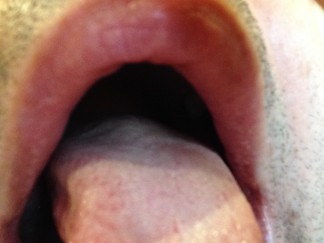Need an Appointment?
If you'd like to book an appointment with the dentist at Seymour Dental then contact us, or call us in Dulwich Hill, Sydney on (02) 9564 2397.
Back of the throat and beyond indicates that bad breathe can come from diseases of various organs of the body or disorders that affects the normal function of the body. Below are some examples to be aware of.
Medications
- Vitamin supplements (especially in large doses) e.g. fish oil.
- Other medications include insulin shots, triamterene, and paraldehyde,
Diabetes
A fruity or sweet odour is a sign of ketoacidosis, which may occur in diabetes. It is a potentially life-threatening condition.
Back of the throat
- Enlarged tonsils allow bacteria to grow around the base causing infection.
- Pharyngitis which is inflammation of the pharynx which is the beginning of the throat behind the tongue.
- Oesophageal cancer is a cancerous (malignant) tumour of the oesophagus.
Lungs
- Respiratory tract infections such as pneumonia or bronchitis.
- Bronchiectasis is a disease in which there is permanent enlargement of parts of the bronchi of the lungs.
- Lung abscess.
Gastric
- Gastroesophageal reflux disease (GERD), gastro-oesophageal reflux disease (GORD), gastric reflux disease, acid reflux disease, or reflux (in babies and young children) is a chronic symptom of mucosal damage caused by stomach acid coming up from the stomach into the oesophagus.
- Breath that smells like faeces can occur with prolonged vomiting, especially when there is a bowel obstruction.
- Gastric carcinoma.
- Gastrojejunocolic fistula (fruity-smelling breath).
Kidneys
- An ammonia-like odour (also described as urine-like or “fishy”) occurs with chronic kidney failure.
- Acute renal failure.
Liver
- Hepatic encephalopathy.
When to Contact a Medical Professional
- The bad breath odour does not go away and there is not an obvious cause (such as smoking or eating odour-causing foods).
- You have a breath odour and signs of a respiratory infection, such as fever, cough, or face pain with discharge from the nose.
Tests the doctor may need to do
- A throat culture.
- Blood tests to screen for diabetes or kidney failure.
- Endoscopy.
- X-ray of the abdomen.
- X-ray of the chest.
If in any doubt seek medical or dental advice.
Next week: Medical emergency course 2015
 479 Marrickville Road
479 Marrickville Road
